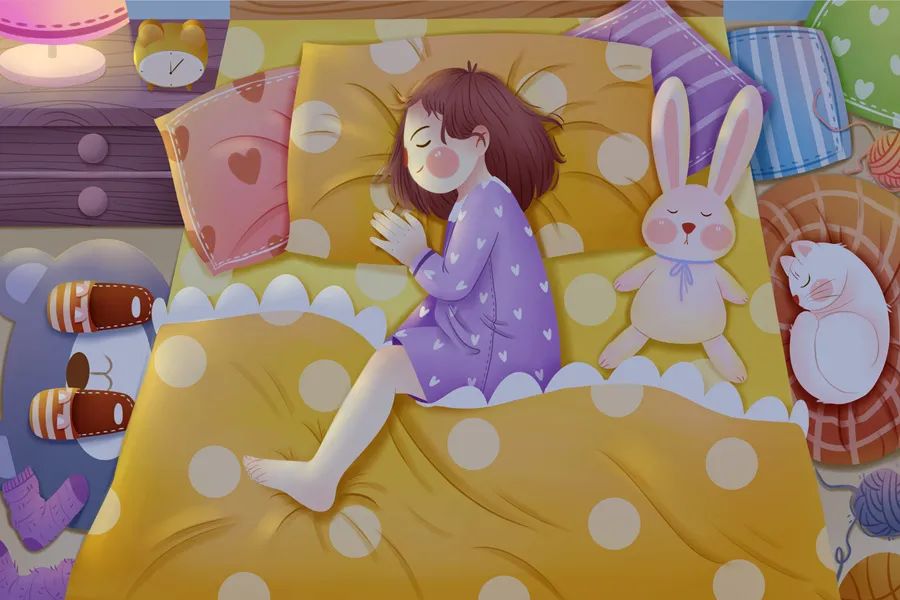
As the ancient saying goes: “Women feel sorrow in spring, men feel sadness in autumn.” This refers to the tendency of women to become particularly melancholic in spring, often feeling sentimental. However, feeling down in spring is not exclusive to women; spring marks the beginning of a new year, and sensitive individuals may feel time passing quickly, leading to feelings of sadness.
The spring climate is often variable, with lower atmospheric pressure and more rain, which can easily lead to feelings of depression and irritability. In Traditional Chinese Medicine (TCM), the body’s different emotional responses to external environmental stimuli are referred to as qíng zhì (情志), and the seven normal emotional activities—joy, anger, worry, thought, sadness, fear, and shock—are known as the qī qíng (七情).
The qī qíng correspond to the five organs. The Huangdi Neijing states: “Anger harms the liver, joy harms the heart, thought harms the spleen, worry harms the lungs, and fear harms the kidneys,” indicating the impact of emotions on the functions of the body’s organs. Emotional imbalance can lead to various diseases.
In spring, it is especially important to guard against liver qi (肝气) stagnation, which can lead to qi yu (气郁). TCM holds that the liver governs the smooth flow of qi, which is essential for the body’s energy dynamics, including the rise and fall of qi and blood. If the liver’s function of regulating qi is normal, then the body’s qi and blood circulate smoothly, and bodily functions remain normal. Conversely, if the liver fails to regulate, qi stagnation occurs, leading to emotional distress.
The Suwen: Six Sections on the Zang Organs states: “The liver is connected to the spring qi.” “Feeling down in spring” is actually a manifestation of liver qi stagnation and emotional discomfort. Therefore, in spring, it is crucial to soothe the liver, maintain a cheerful disposition, and cultivate a positive and optimistic mindset.If emotions are not well managed, it can lead to discomfort not only mentally but also physically.
Feeling depressed in spring is quite normal
“The plan for the year is made in spring,” but during this time of renewal, new KPIs can easily become overwhelming pressures.If one cannot appropriately adjust and take a breather, it can easily lead to emotional issues and sleep problems.
Due to the imbalance of biological rhythms, people are prone to insomnia and drowsiness in spring, which is a natural phenomenon. However, “spring drowsiness” can lead to fatigue and decreased efficiency, making it easier for those who struggle with emotional regulation to experience feelings of depression, anxiety, and frustration, questioning whether they are ill, worrying that their minds are collapsing, and falling into pessimism, losing confidence in everything. In reality, the troubles brought by spring drowsiness stem from the “inner demons.”

As the days lengthen and sunlight intensifies in spring, studies have shown that the ovulatory hormones in women’s ovaries are particularly sensitive to light, which is why women may experience more emotional fluctuations in spring.The notion that women feel sorrow in spring has some scientific basis, as their emotions are influenced by light, atmospheric pressure, and temperature.Research also indicates that the incidence of mental illness increases or recurs in March and April. When spring arrives, the depression of those with depression becomes more pronounced, making them more likely to feel guilty about their emotions, entering a vicious cycle that exacerbates depressive symptoms.
Current observational data also suggests:The immune response following COVID-19 infection (inflammation) may temporarily reduce the body’s ability to cope with stress, commonly referred to as being “relatively fragile.”Thus, the body, which could normally handle the various changes in neurotransmitters during spring, now finds it more challenging to navigate these hurdles, even exhibiting certain symptoms. Individuals who are introverted or irritable, or lack confidence, are more prone to mental tension, experiencing anxiety, sleep disturbances, and loss of appetite.
We can adjust our emotions through the following aspects:
Diet
Consume foods that help stabilize emotions, relieve stress, and alleviate tension, such as those rich in amino acids or sweets that can help combat depression. Foods like soy products, nuts, and mushrooms are good options, including black fungus (黑木耳), peanuts, sunflower seeds, pumpkin seeds, almonds, hazelnuts, dried bamboo shoots, daylily (黄花菜), lily bulb (百合), and Chinese yam (山药). You can also treat yourself to some small cakes, chocolates, or colorful fruit candies.
Sleep

Ensure about 6 to 10 hours of sleep each day; sleep when you feel tired. Sleep is a form of self-regulation for the brain and is beneficial. However, excessive sleep can be detrimental, leading to vivid dreams and causing physical weakness, mental confusion, and fatigue.
Clothing
Pay attention to the principle of “keep warm in spring and cool in autumn”; do not rush to shed heavy clothing, and be mindful of warmth. In the bright spring, adorn yourself with vibrant colors, especially when feeling down; choose bright colors to positively influence your mood.
Learn to Vent
Learn to express and release; do not bottle things up inside. A good cry might help you feel better. When emotions cannot be shaken off, consider confiding in someone; find a close friend to share your grievances and dissatisfaction. When you open your heart and express your depression and worries, sunlight has a chance to shine into your gloomy heart, bringing warmth and strength.
You can also try to change your lifestyle, be proactive, engage more with friends, and uplift your mood. Learn to shift your focus; when you feel low, do not stay alone in an unchanging environment; go outside to experience the outside world and embrace new stimuli and changes. Organize your life, pay attention to the small beauties in life, find meaning and value in each day, and experience the joy of success to reduce worries. By living purposefully, you can improve your physical and mental health, thus overcoming the laziness and gloom brought by spring.
Exercise

Engage in activities that promote heart and blood circulation, such as long-distance walking or jogging, until you feel slightly fatigued, and avoid overthinking. Participate in outdoor activities like brisk walking, jogging, or hiking; enjoy the sunshine. Exercise can often alleviate symptoms of brain fatigue, depression, and drowsiness caused by overthinking, soothe the nerves, and relieve mental fatigue. Exercise is not only a physical challenge but also a mental training that cultivates patience and can serve as a way to shift focus and vent emotions.
Listen to Music and Sing
Music helps regulate emotions. When you are feeling down, do not forget to listen to your favorite songs or sing a song that expresses your current feelings. Through song, your frustrations, depression, or sadness can be released.
Shout to Release Your Sorrows
When feeling repressed, there is often a buildup of pressure inside. If not released, it can be uncomfortable. At this time, you can go to an open space and let out a heartfelt shout. When shouting, try to express what you feel oppressed by as truthfully and thoroughly as possible.
Experiencing emotional fluctuations is normal, but it is important to distinguish between a “depressive state” and “depression.” For most people, “depression” is akin to a cold or fever, which can typically resolve itself within three to five days through self-regulation. However, if symptoms such as insomnia, irritability, and persistent low mood last for more than two weeks, it is advisable to seek psychological counseling for timely adjustment. If negative emotions persist for more than three months, and symptoms of severe pessimism, self-harm, or suicidal thoughts arise, it is crucial to be vigilant and seek help from a mental health professional, as your life is precious.
This spring, let us embrace the sunshine together.■
【Source: Zhuhai Hospital of Guangdong Provincial Hospital of Traditional Chinese Medicine, Medical Guidance: Li Dongmei, Deputy Chief Physician of the Breast Department】推荐阅读



